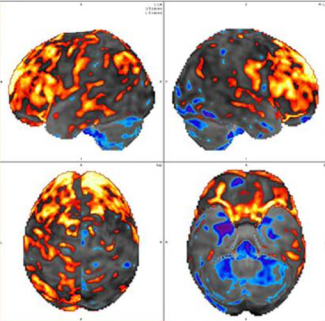
Recent work by Penn graduate Eric Teichner (BIBB, 2020) stands to significantly advance our understanding and treatment of persistent postconcussion syndrome (PCS), as described in Nuclear Medicine Communications. Working with a team including Andrew Newberg (Penn, Jefferson) along with researchers from Penn, Jefferson University and Harvard Medical School, Eric used FTG-PET to measure metabolism in patients with persistent symptoms following concussion. "The big conclusion from our study" says Eric "is that post-concussion syndrome presents with a combination of neuroinflammation that potentiates increased glucose metabolism, triggering downstream compensatory mechanisms, but at the same time is also coupled with neuronal cell damage associated with decreased metabolic activity." Teichner EM, You JC, Hriso C, Wintering NA, Zabrecky GP, Alavi A, Bazzan AJ, Monti DA, Newberg AB. Alterations in cerebral glucose metabolism as measured by 18F-fluorodeoxyglucose-PET in patients with persistent postconcussion syndrome. Nucl Med Commun. 2021 Mar 3.
